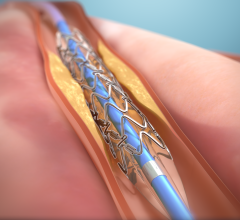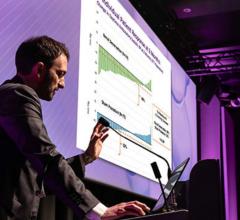
May 17, 2023 — Edwards Lifesciences announced that new data from the Benchmark Registry in Europe demonstrated the safety and effectiveness of this streamlined treatment pathway for patients receiving transcatheter aortic valve replacement (TAVR) with balloon-expandable valves. The data were presented in a late-breaking clinical data session at EuroPCR 2023.
The study observed 2,405 patients who underwent TAVR with a balloon-expandable valve at 28 sites in seven European countries to determine if implementing a set of tailored Benchmark practices could improve hospital length of stay (LOS), intensive care unit (ICU) bed occupancy, and patient and staff satisfaction while preserving patient safety. Patients undergoing TAVR experienced a 25% reduction in ICU stay, a 33% reduction in the median hospital LoS while maintaining 30-day clinical outcomes similar to patients treated before the implementation of the Benchmark pathway. Researchers concluded that a wider implementation of Benchmark best practices will make the TAVR pathway more efficient without compromising patient safety.
Beyond a marked decrease in ICU stay and hospital LoS with no loss of patient safety at 30 days, the study results also reflected high patient satisfaction with all elements of the Benchmark practices, scoring above 90% in post-procedure patient satisfaction surveys.
"The results of this study validate the Edwards Benchmark program as an important tool in reducing the variation in clinical pathways for patients undergoing TAVI [TAVR] across Europe," said Derk Frank, head of cardiology at University Hospital Schleswig-Holstein, in Kiel, Germany. "Our results indicate significant improvements in efficiency without compromising patient safety."
The Edwards Benchmark program standardizes a minimalist approach to TAVR with a focus on conscious sedation, recovery outside the ICU, and a goal of next-day discharge that unlocks the inherent benefits of TAVR's less invasive nature while preserving patient outcomes. An economic analysis by the PARTNER 3 trial investigators identified TAVR as an "economically dominant" strategy to surgical aortic valve replacement (SAVR) among low risk patients and recognized the potential for greater efficiencies with the continued evolution of minimalist TAVR procedures.1 Further research found that a minimalist TAVR pathway (compared to standard TAVR from the SAPIEN 3 Intermediate Risk Registry) was associated with potential cost savings of $11,000 USD per case during the index hospitalization.2
"The Benchmark Registry contributes to the growing body of evidence that demonstrates TAVR as a triple win that not only saves lives, but also improves patients' quality of life and saves money for the healthcare system," said Larry Wood, Edwards' corporate vice president and group president, transcatheter aortic valve replacement and surgical structural heart. "These data should give implanters confidence that the Benchmark program can help TAVR centers be more efficient without compromising safety."
Benchmark best practices cover communication, patient and staff education, decision making and clinical procedures. It is currently being utilized in more than 320 centers in the United States, Europe, Australia, Canada, Korea and New Zealand. For more information: www.heartvalves.com/gb
References:
1 Galper BZ, Chinnakondepalli KM, Wang K, et al. Economic Outcomes of Transcatheter Versus Surgical Aortic Valve Replacement in Patients with Severe Aortic Stenosis and Low Surgical Risk: Results from the PARTNER 3 Trial. Circulation. 2023; Epub ahead of print.
2 Butala NM, Wood DA, Li H, et al. Economics of Minimalist Transcatheter Aortic Valve Replacement: Results From the 3M-TAVR Economic Study. Circulation: Cardiovascular Interventions. 2022 Oct;15(10):e012168.


 May 30, 2024
May 30, 2024 




